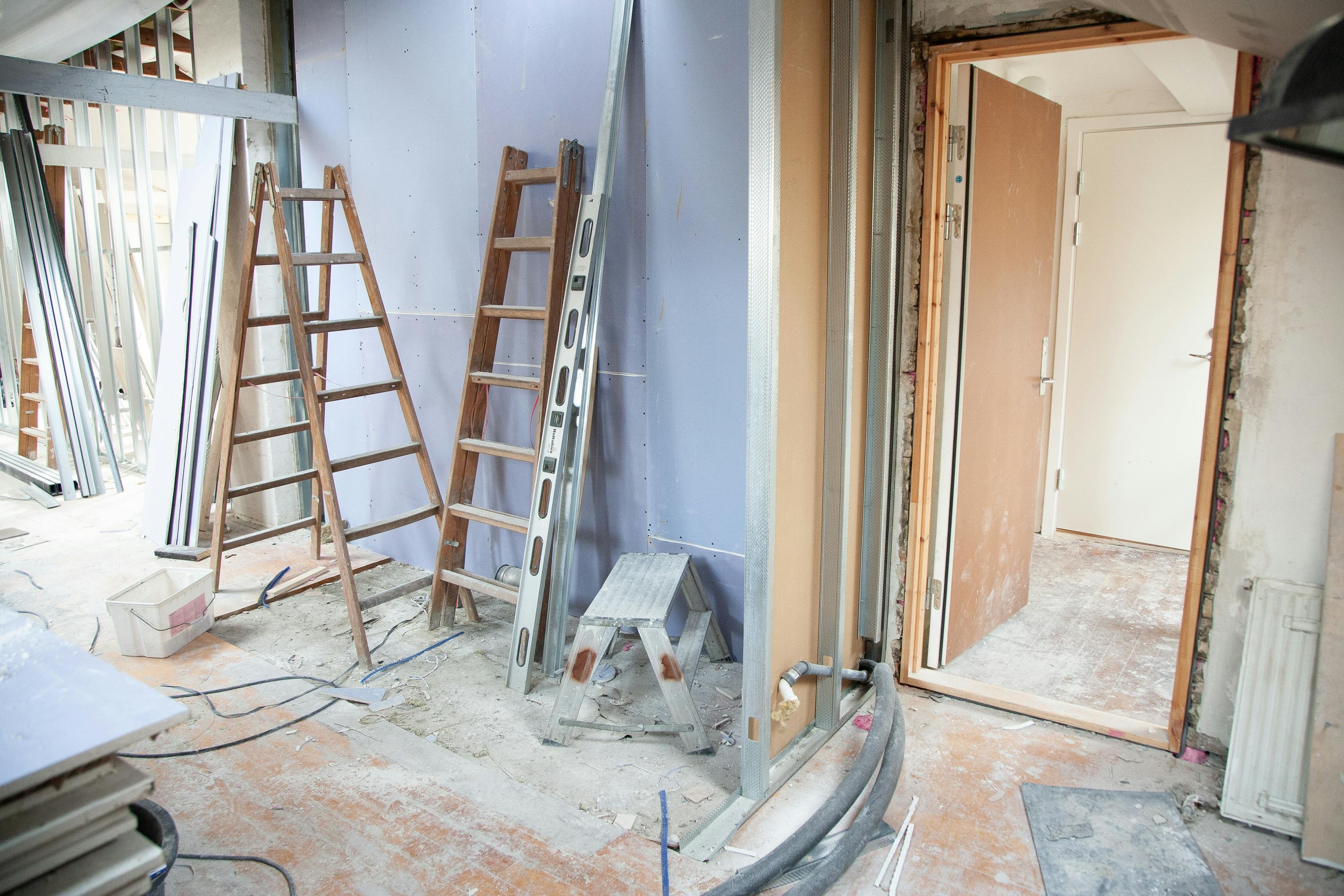Understanding Real Estate Investment Cost: A Comprehensive Guide
Wondering how much it will cost to invest in real estate? This guide breaks down the real estate investment cost you need to know, from initial expenses like down payments and closing costs to ongoing fees such as maintenance and taxes. Understanding these costs is crucial for successful investment planning.
Key Takeaways
Real estate investment costs include initial expenses like down payments and closing costs, as well as ongoing costs such as property taxes and maintenance fees, crucial for successful financial planning.
Understanding hidden costs, such as vacancy rates and unexpected repairs, is vital for maintaining profitability and avoiding financial strain in real estate investments.
Utilizing effective strategies like negotiating purchase prices and leveraging tax incentives can significantly minimize investment costs and enhance overall returns.

Understanding Real Estate Investment Cost: A Comprehensive Guide
Real estate investment costs encompass a wide range of expenses that investors must consider. From the initial outlay required to purchase a property to the ongoing costs of maintaining and managing it, understanding these expenses is crucial for any successful real estate investor.
This guide will delve into the critical areas of real estate investment costs, including initial costs like down payments and closing fees, ongoing expenses such as property taxes and maintenance, and the often-overlooked hidden costs. By exploring these aspects in detail, we aim to provide a clear and comprehensive picture of what it takes to thrive in the world of real estate investing. If you're new to the business of investing in real estate and want to learn more, read Step by Step Real Estate Investing: A Comprehensive Guide.
Introduction
The journey of real estate investing is paved with numerous costs that investors must navigate. Understanding the full spectrum of these costs is crucial for successful financial planning and sustained profitability. Initial costs, such as down payments, closing costs, and initial repairs, are just the beginning.
As you progress, recognizing and planning for ongoing expenses, including property management fees, maintenance, updates, and taxes, becomes key to sustaining profitability. Ultimately, a comprehensive understanding of all investment costs is vital for maximizing returns and minimizing unexpected financial burdens.
Initial Costs in Real Estate Investing
When embarking on the journey of real estate investing, the initial costs can be significant and varied. From the down payment needed to secure the property to the closing costs and initial repairs, these expenses form the foundation of your investment. Preparing for these costs sets the stage for a profitable venture.
Down Payment Requirements
One of the first hurdles in real estate investing is the down payment. For residential properties, down payment requirements typically range from 3% to 20% of the purchase price. However, for many commercial properties, conventional loans often require a down payment of 30% or more, making commercial real estate investing less affordable compared to buying a house.
These requirements are key to planning your financing strategy. The higher down payment for commercial properties reflects the increased risk lenders perceive. As an investor, being prepared for these financial demands will help you navigate the initial stages of your investment journey with confidence.
Closing Costs Breakdown
Closing costs are another significant initial expense in real estate investing. These costs can range from 2% to 5% of the home's sale price and include various fees such as loan origination, appraisal, and title insurance. Knowing these components aids in budgeting and financial planning.
To reduce the overall upfront investment, investors can negotiate with sellers to cover a portion of the closing costs. This strategic move can alleviate some of the financial burdens and make the investment more manageable up front.

Initial Repair and Renovation Costs
Once the property is acquired, initial repairs and renovations are often necessary to make it rentable or increase its value. These costs can vary widely depending on the condition of the property. Common expenses include new paint, carpeting, and inspections of major systems.
Real estate investors must be prepared for these costs, especially if they purchase properties 'as-is'. These properties tend to be sold below market value but require a significant amount of work in order to be sold for a profit. Proper budgeting for initial repairs and renovations ensures that the property is in optimal condition, attracting tenants and generating rental income more efficiently.
Ongoing Expenses in Real Estate Investments
Beyond the initial costs, ongoing expenses are a critical aspect of real estate investing. These expenses include property taxes, insurance, maintenance, and management fees, all of which are necessary to keep the property operational and profitable. Planning for these costs is vital for long-term success.
Property Taxes and Insurance
Property taxes and insurance must be included in your budget for long-term financial stability. Neglecting these costs can lead to significant financial strain, potentially jeopardizing the investment.
Setting aside funds for property taxes and insurance helps avoid unexpected financial burdens. By planning for these expenses, investors can maintain the financial health of their properties and ensure sustained profitability.
Maintenance Costs and Repairs
Maintenance costs and repairs are inevitable in real estate investing. Unexpected repair costs can create significant financial challenges for property owners. Implementing a proactive maintenance plan can help avoid costly emergency repairs and reduce long-term operating expenses.
Investors should allocate a portion of their budget for regular maintenance and repairs. This proactive approach ensures that the property remains in good condition, attracting and retaining tenants while minimizing unexpected costs.
Property Management Fees
Property management companies play a critical role in overseeing the day-to-day operations of rental properties. They typically charge around 8% of the monthly rent for their services, which include managing tenant relations, maintenance, and rent collection.
Hiring a property management company can significantly reduce the workload for investors, allowing them to focus on other aspects of their investment portfolio. The fees charged by these companies are often a worthwhile expense for ensuring smooth management and maximizing rental income.
Financing Options for Real Estate Investors

Real estate investors have various financing options beyond just owning a home. These options include rental properties, REITs, conventional loans, hard money loans, and crowdfunding platforms. These options are key for making informed investment decisions.
Traditional Mortgages
Traditional mortgages are one of the most common financing options available for real estate investors. Closing costs for traditional mortgages typically range from 6% to 10% of the sale price, making them a significant consideration for investors.
Real estate investors must understand the terms and requirements of traditional mortgages. By planning for these costs, investors can secure the necessary financing and navigate the initial stages of their investment journey with confidence.
Alternative Financing Methods
Alternative financing methods, such as hard money and private money loans, offer viable options for real estate investors seeking quick access to funds. Hard money loans are typically short-term and primarily used for quick property flips.
Private money loans can vary significantly based on the relationship between the borrower and lender. These alternative financing options offer the flexibility needed to seize investment opportunities.
Leveraging Real Estate Investment Trusts (REITs)
REITs are companies that own and operate income-generating real estate, providing a way to invest without the need for direct property ownership. Investing in REITs allows individuals to earn passive income through regular dividends, with reliable REITs having a solid track record of paying large and growing dividends.
Investors can buy REITs through online brokers that offer publicly traded REITs, as well as REIT mutual funds and ETFs. This investment option offers diversification and potential for significant returns without the responsibilities of direct property management.
Cost Comparison: Residential vs. Commercial Real Estate

Comparing the costs of residential property and commercial real estate investments reveals significant differences. While residential properties typically require more initial expenses, commercial properties often offer more predictable cash flows and higher income potential. These differences are key for investors to make informed decisions. If you're not sure what type of real estate you want to invest in, reading Build Wealth with Real Estate Investing: Proven Strategies can be helpful.
Upfront Costs
Residential real estate investors face significant upfront costs, including annual property tax payments and funding major repairs such as roofs or HVAC systems. These costs can add up quickly, impacting the overall affordability of residential real estate investing.
In contrast, commercial properties often have lower initial expenses, with longer lease terms providing more predictable cash flows. Understanding these differences helps investors plan their strategies and budget accordingly.
Operating Expenses
Operating expenses for both residential and commercial properties include property insurance, management fees, maintenance fees, and utility costs. However, commercial real estate leases usually allocate operating expenses such as property taxes, insurance, and maintenance to tenants.
When a property is vacant, the owner must still cover expenses and mortgage payments. Implementing strategic cost-saving measures can significantly enhance profitability for real estate investors.
Potential Returns and Risks
Investors in commercial real estate typically benefit from higher income potential due to greater monthly rents. However, effective negotiation skills can lead to substantial reductions in purchase prices, impacting overall investment returns.
Strategies like 1031 exchanges allow investors to defer capital gains taxes on property sales, further enhancing the profitability of real estate investments. These strategies are vital for maximizing returns and managing risks.
Hidden Costs in Real Estate Investing
Hidden costs can significantly impact the profitability of real estate investments. Investors often overlook various expenses, such as vacancy rates, legal compliance, and unexpected repairs, which can diminish overall returns. These costs are essential for comprehensive financial planning.

Vacancy Rates and Lost Rent
Vacancy rates directly relate to the profitability of rental properties, as periods without tenants result in lost income. Evicting a tenant who does not pay rent can take months, significantly impacting overall rental income.
Implementing effective tenant screening processes and proactive property management can help reduce vacancy rates and subsequent lost rent. Ensuring continuous rental income is crucial for maintaining the financial health of the investment.
Legal and Compliance Costs
Legal and compliance costs are often overlooked but can significantly impact the profit margins of real estate investments. These costs include fees for permits, inspections, and other regulatory requirements, which are essential for maintaining rental properties.
Investors must account for these expenses in their budgets to avoid unexpected financial strain. Staying informed about local regulations and compliance requirements helps mitigate these costs and ensures the investment remains profitable.
Unexpected Repairs and Emergency Funds
Unexpected repairs can pose significant financial challenges for real estate investors. Setting aside emergency funds for unforeseen repairs is crucial for maintaining cash flow and avoiding financial strain.
Allocating a portion of the budget for unexpected repairs helps mitigate the impact of sudden maintenance issues. This proactive approach ensures the property remains in good condition and continues to generate rental income.
Tax Implications and Benefits
Understanding tax implications and benefits is crucial for maximizing returns and ensuring sustainable investments in real estate. Tax incentives, deductions, and depreciation can significantly enhance overall profitability.

Depreciation and Deductions
Real estate investors can write off depreciation on rental properties to lower taxable income, even if the property value increases. This annual depreciation deduction reduces the overall tax liability and enhances profitability.
Taking advantage of these deductions is essential for effective financial planning. Understanding how to apply depreciation and other tax benefits can significantly impact the net income from real estate investments.
Capital Gains Tax
Capital gains tax is a tax on the profit realized from the sale of a non-inventory asset, such as real estate. One strategy to mitigate capital gains tax when selling a commercial property is to utilize a 1031 exchange, allowing investors to defer the tax by reinvesting in a similar property.
Understanding and applying these strategies can significantly impact the overall profitability of real estate investments. Investors should plan their sales and reinvestments carefully to maximize tax benefits and minimize liabilities.
Tax Benefits of Real Estate Investments
Investing in real estate not only allows for potential appreciation but also offers significant tax advantages such as reductions in capital gains tax and mortgage interest deductions. Long-term capital gains tax rates can be lower than ordinary income tax rates for properties held over a year.
Homeowners might be eligible for a mortgage interest deduction. This deduction applies to debt amounts of up to $750,000. Understanding and utilizing these tax benefits can enhance the overall profitability of real estate investments.
Strategies to Minimize Real Estate Investment Costs
Minimizing real estate investment costs involves strategic planning and effective management. From negotiating purchase prices to leveraging tax incentives, these strategies are crucial for maximizing returns and ensuring the financial health of the investment.

Negotiating Purchase Prices
Effective negotiation can lead to significant savings on initial purchase prices, impacting overall investment costs. Buyers can often negotiate lower prices by using home inspection reports as leverage for required repairs.
Engaging a real estate agent can provide valuable market insights, helping buyers make informed offers. By negotiating wisely, investors can reduce their upfront costs and enhance the overall profitability of their investments.
Efficient Property Management
Efficient property management is essential for reducing operating expenses and maximizing net operating income. Property management fees typically range from 8% to 12% of monthly rental income, and choosing the right management company can affect overall expenses.
Implementing strategies such as competitive pricing and enhanced marketing can help minimize vacancy rates. Establishing an emergency fund for unexpected repairs helps mitigate the impact of unforeseen maintenance costs on cash flow.
Utilizing Tax Incentives
Tax incentives play a crucial role in real estate investment, allowing investors to significantly reduce their taxable income, which enhances overall profitability. Types of tax incentives include depreciation, deductions, and specific tax credits that can be claimed by real estate investors.
Properly leveraging tax incentives can lead to significant savings, ultimately improving the profitability of real estate investments. These incentives and their application are essential for effective financial planning.

Summary
In summary, understanding and managing the various costs associated with real estate investing is crucial for maximizing returns and ensuring the financial health of the investment. From initial costs like down payments and closing fees to ongoing expenses such as property taxes and maintenance, every expense impacts the overall profitability.
By leveraging financing options, understanding tax implications, and employing strategic cost-saving measures, investors can navigate the complex world of real estate investment with confidence. Effective negotiation, efficient property management, and the utilization of tax incentives are key strategies for minimizing costs and enhancing returns.
As you embark on your real estate investment journey, remember that knowledge is power. By understanding the full spectrum of costs and planning accordingly, you can achieve sustained profitability and financial success in the dynamic world of real estate investing. To learn more about real estate investing, see Top Tips to Start Investing in Real Estate Today.
Frequently Asked Questions
What are the typical down payment requirements for real estate investments?
Down payment requirements for real estate investments typically range from 3% to 20% for residential properties, while investment properties often necessitate a down payment of 30% or more when utilizing conventional loans.
What are the main components of closing costs in real estate investing?
The main components of closing costs in real estate investing typically include loan origination fees, appraisal fees, and title insurance, amounting to 2% to 5% of the home's sale price. Understanding these costs is crucial for effective financial planning in your investment.
How can investors reduce the impact of vacancy rates on rental income?
Investors can mitigate the impact of vacancy rates on rental income by implementing thorough tenant screening, proactive property management, and maintaining the property regularly to attract and retain tenants. This approach fosters consistent rental income and minimizes disruptions.
What are some alternative financing methods for real estate investors?
Alternative financing methods for real estate investors include hard money loans for quick property flips and private money loans that depend on the borrower's relationship with the lender. These options provide flexibility and speed that traditional financing may not offer.
How can real estate investors leverage tax incentives to enhance profitability?
Real estate investors can enhance profitability by leveraging tax incentives such as depreciation, expense deductions, and available tax credits to effectively reduce their taxable income. This strategic approach maximizes financial returns on their investments.